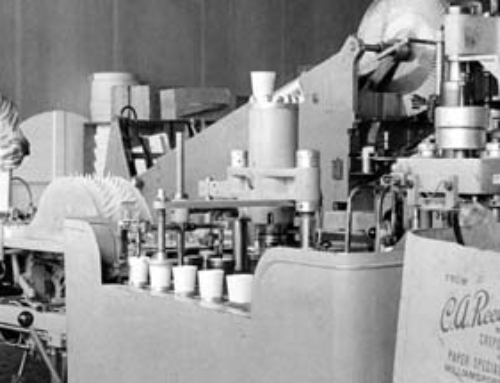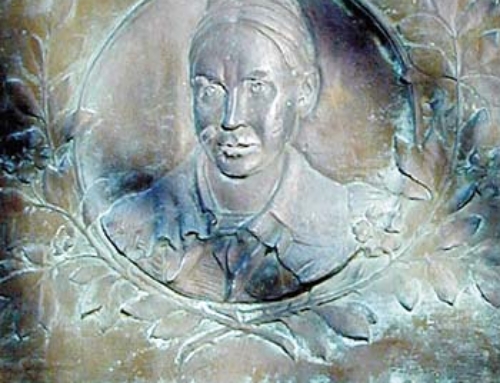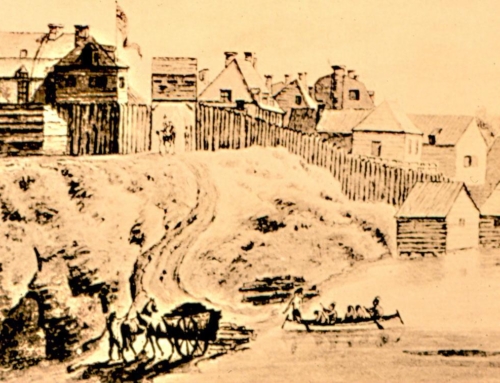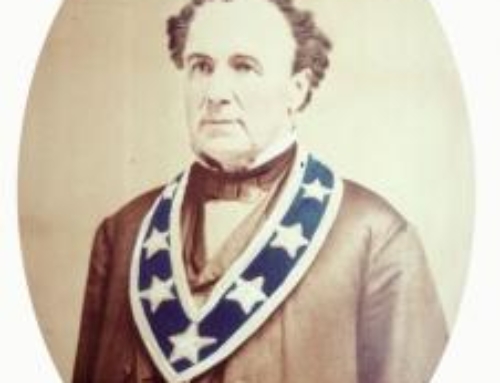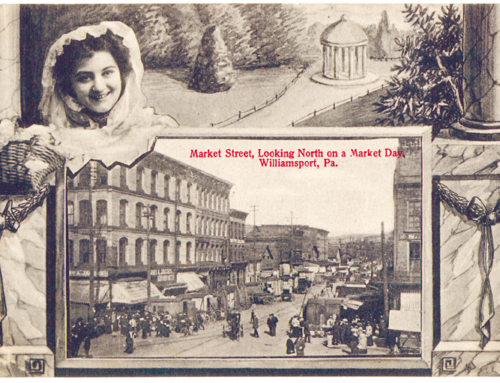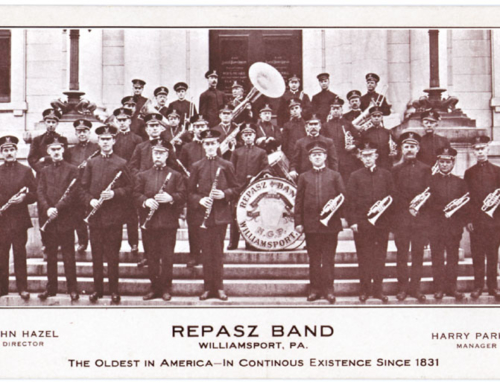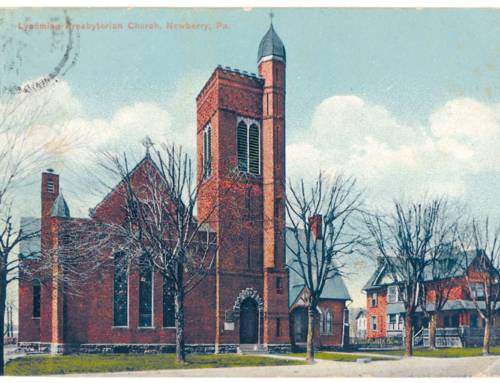If Michael Ross is noted as the founder of Williamsport, William Hepburn can be regarded as the “Father of Lycoming County.” He is as firmly a part of the genesis of the county as Ross is of the city. In fact, Ross and Hepburn’s lives would become intertwined.
Hepburn was born in Donegal, Ireland, in 1753 and came to this country in 1773 or 1774. He lived for a time at Sunbury and came upriver to dig a race for Andrew Culbertson’s saw and gristmill near present-day DuBoistown.
A short time later, because of trouble with the American Indian population of the area, Hepburn became a member of the local militia company. He rose through the ranks rapidly, became a colonel and was commander of Fort Muncy, on the Muncy farm of Samuel Wallis, at the time of the “Great Runaway” in 1778.
 Everyone living west of the Muncy Hills was ordered south to Fort Augusta in Sunbury. Hepburn ordered Robert Covenhoven to warn the settlers at Antes Fort and Fort Horn near Lock Haven.
Everyone living west of the Muncy Hills was ordered south to Fort Augusta in Sunbury. Hepburn ordered Robert Covenhoven to warn the settlers at Antes Fort and Fort Horn near Lock Haven.
Hepburn was forever linked to the Covenhoven family when he married Crecy Covenhoven, the sister of Robert Covenhoven, in the summer of 1777. She would bear 10 children.
Following the American Revolution, Hepburn bought a tract of 300 acres known as “Deer Park” within the boundaries of present-day Williamsport. He became a farmer, a distiller, merchant and, later, a Justice of the Peace.
He was a very generous man, an example of which was noted in the Lycoming Gazette of July 3, 1821, on the occasion of Hepburn’s death. It noted that, when a man named John Bennett paddled his canoe six miles downstream to have Hepburn perform his wedding ceremony, “the groom hesitantly informed him that he did not have enough money to pay the fee and buy a few articles necessary for housekeeping. Hepburn was so impressed with the frankness and honest appearance of Mr. Bennett that he not only remitted the fee but supplied him with some provisions from his store.”
Hepburn was elected state senator representing Luzerne, Mifflin, and Northumberland counties in January 1794. During his Senate tenure, he played a critical role in the erection of Lycoming County, which was to be carved from territory taken from Northumberland County.
He was selected to a group of five state senators whose task was to prepare the division of Northumberland County. The committee prepared a report that became a bill that established Lycoming County. Gov. Thomas Mifflin signed it into law on April 13, 1795.
In recognition for his key services in helping to create Lycoming County, Mifflin appointed Hepburn one of the first four associate judges of the Lycoming County Court. His colleagues then elected him to be the first president judge of Lycoming County. Hepburn had no formal legal training.
In the words of Marshall Anspach in his book, “Historical Sketches of Lycoming County,” Hepburn “was noted for the fairness of his decisions, as well as the muscular force sometimes employed to maintain the dignity of the court.”
John Meginness writes in his “History of Lycoming County,” “he discharged the duties of judge with ability and fairness.”
Hepburn was a critical influence in the placing of the county seat in Williamsport. He owned a large tract of land near Michael Ross’ land that would become Williamsport and the men worked in concert to see that the city was granted the county seat.
He was given further recognition for his military service and prowess in 1807, when Gov. Thomas McKean appointed him a Major General of the 10th Division of the State Militia.
Hepburn was prominent in church and fraternal affairs and was one of the early church fathers of Lycoming Presbyterian Church. He was instrumental in the founding of the first Masonic lodge in Lycoming County, a fraternity whose brethren long would be influential in the county’s economic and civic life.
He was elected the first Worshipful Master of Lodge 106, F&AM. Hepburn’s first wife died in 1800. He was remarried shortly thereafter to Elizabeth Huston, who bore him nine more children. He died June 25, 1821 at the age of 68. He left the legacy of a flourishing and developing Lycoming County and helped lay the groundwork for Williamsport.
By Lou Hunsinger Jr., Williamsport Sun-Gazette


